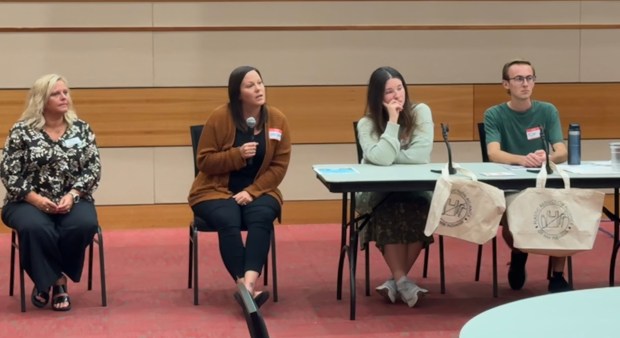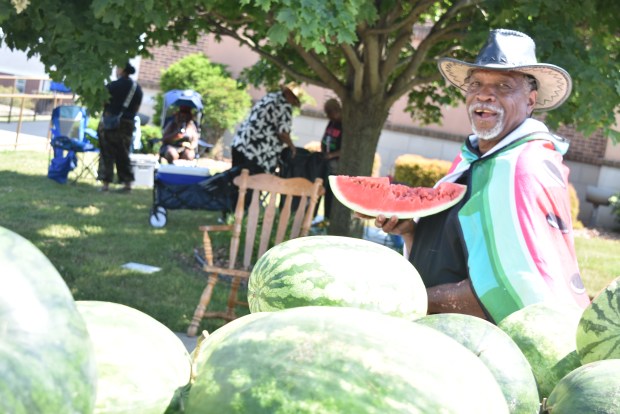The overuse of plastic materials, common in many facets of society, poses serious problems for environmental and human health.
The Plastic Reduction Alliance held a meeting on Wednesday to discuss ways to reduce plastic in everyday life, particularly in schools and educational spaces.
“About half of all plastics were manufactured in the past two decades, which means that our youth are exposed to plastics at a much higher level than previous generations,” said Julie Peller, researcher, advocate and chemistry professor at Valparaiso University.
“In addition to the massive amounts of plastic waste generated without viable solutions, studies are now showing that plastics and their additives are harmful to human health,” said Peller. “I am concerned about my grandchildren.”
There are 50 million students in public schools K-12 in the United States, and 12.2 million pounds of plastic food-related waste is thrown away daily in public schools, according to the National Library of Medicine website.
“Around 1950 is when plastic really started to take off,” said Peller. “The reality is that humanity lived for a very long time without a single plastic material.”
“We have a waste problem, and a lot of it has to do with the fact that we have become a plastic world,” said Peller. “We have adopted plastic without an end game.”
“The United Nations calls plastic waste part of a triple planetary crisis, with climate change, loss of biodiversity and all this waste,” said Peller.
“Plastics do not decompose, and I think we all know this,” said Peller. “The reality is that we have never had a good plan for this material.”
At Wednesday’s meeting, the panel of guests included Ashley Monroe, the Valparaiso Community Schools operations coordinator for school nutrition.
“During COVID, we had to start packing all individual products that were available to students for sanitary purposes,” said Monroe. “Since that time we have been working toward getting away from the individual packaging.”
“We have greatly reduced our plastics,” said Monroe. “Currently our middle schools and high school are all serving fruits and vegetables sides as bulk offerings, where the students are self-serving so we have reduced the bags and containers we were using.”
Panelist Carrie Higgins is the program director for the Tobacco Education and Prevention Coalition for Porter County.
“Our work is starting to involve more environmental issues,” said Higgins. “Cigarettes and cigarette butts were a primary cause of trash in the environment, but what we are not hearing people talk about a lot is the new vaping epidemic.”
“We are finding that nobody knows what to do with the vape devices or the vials of liquid that contain nicotine and other chemicals,” said Higgins, noting that she has tubs full of confiscated vape devices from school resource officers that she does not know how to recycle properly.
The alliance is organized by Valparaiso University faculty, Porter County Recycling and Waste Reduction, and Mermaid Straw. It is a call to action for municipal governments, local businesses, non-profits and individuals to join forces in a concerted effort to preserve the environment for future generations.
“We believe that educational institutions play a crucial role in shaping the habits and values of future generations,” said Ellen Kapitan of the Recycling and Waste Reduction District of Porter County. “By educating and reducing plastic in the schools, we not only protect our environment and increase healthy practices but also instill a sense of responsibility and environmental stewardship in our students.”
For more information on the Alliance or how to get involved, contact Ellen Kapitan at info@portercountyrecycling.org.
Deena Lawley-Dixon is a freelance reporter for the Post-Tribune.





